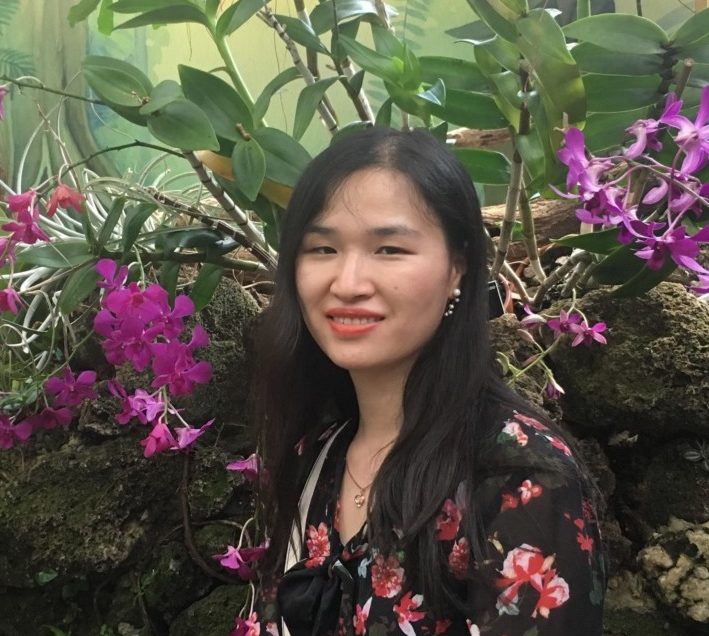
Wanfang Fu, a plant and environmental sciences doctoral student at Clemson University, was recently awarded a first-place U.P. Hedrick Award from the American Pomological Society and the Wade Stackhouse Fellowship from Clemson University for her research in disease tolerances for peaches.
The U.P. Hedrick Award was established in 1982 by the American Pomological Society “to encourage promising and gifted students to specialize in the field of pomology, the science of growing fruit,” with the award being named after famous horticulturalist, Ulysses Prentiss Hedrick.
Hedrick Award recipients receive a cash award and a mounted certificate. The associated manuscripts are published in the Journal of the American Pomological Society.
The Wade Stackhouse Fellowship awards students enrolled in a master’s or doctoral program within the College of Agriculture, Forestry and Life Sciences with a stipend of $10,000 per year for their research.
Fu’s passion for plants and conservation began on her family’s walnut plantation in Weifang, China, which naturally transferred to her career and research decisions at Clemson.
“Since I have spent a lot of time on our plantation, I understand the importance of good cultivation for plants,” Fu said. “I then decided to focus my research on plant breeding, which is why I chose plant and environmental sciences as my major. Clemson provides me a favorable environment for both learning and research.”
Fu’s research on disease tolerances in peaches seeks to find more sustainable and environmentally friendly solutions for farmers to harvest peach trees without the fear of bacterial spotting and brown rot.
“I look at the observable characteristics of a peach and the results of its interactions with its genotype in the environment,” said Fu. “I then use the genotype data to find out the genes associated with disease tolerances in peach fruit. After we find those markers, we use them as tags to help us select out the seedlings with disease tolerance in their early stages. This means the breeders then do not need to wait until they develop into larger trees, thus helping to shorten the breeding cycle.”
Fu attributes her success to the mentoring of her supervisor, Ksenija Gasic, who is part of a national team of scientists working on genomics, genetics and breeding of rosaceous crops, as well as the opportunities Clemson has given to her through different research initiatives, informative classes and the fellow colleagues in her doctoral program.
“I’m so lucky to work with my supervisor and my friends in our lab,” said Fu. “They always support me when I have challenges. Clemson has given me the opportunities to attend scientific conferences, which gives me the chance to see other types of research. The classes help me to use my knowledge to then transfer into my research. My time in the field and lab during the summer with my lab members also helped me to better understand the project. I would not have achieved all these successes without these people and my program at Clemson.”
“Wanfang is a hardworking and detail-oriented young researcher,” said Gasic. “Her master’s on understanding genetics of brown rot resistance and tolerance in peach fruit generated a lot of interest from growers and researchers. The potential to include a genetic solution along the management practices for control of this devastating disease is promising, and Wanfang is setting up the foundation for this to happen.”
Fu thanked the USDA’s National Institute of Food and Agriculture for the Specialty Crop Research Initiative Competitive project: “RosBREED: Combining disease resistance with horticultural quality in new rosaceous cultivars” for its support with her research.
Get in touch and we will connect you with the author or another expert.
Or email us at news@clemson.edu

